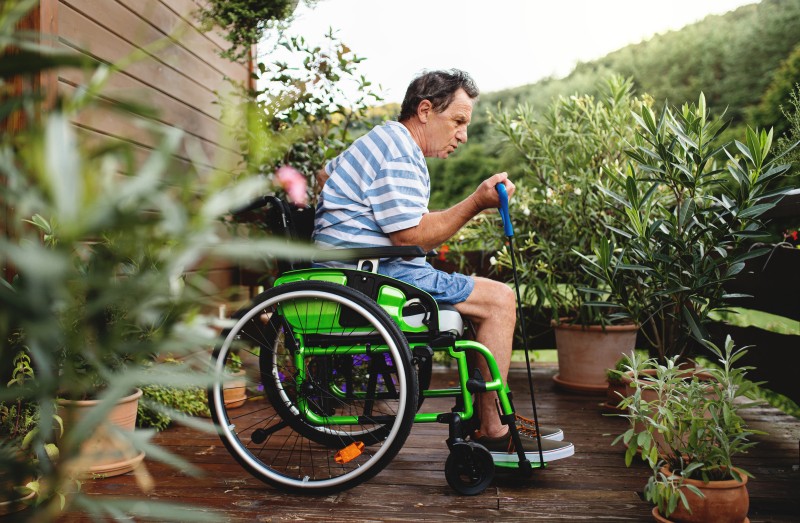What causes dry heaves in elderly individuals is a question that often arises from caregivers and family members who are concerned about the well-being of their senior loved ones. Understanding the reasons behind this uncomfortable condition is crucial in providing the right care and support. In this article, we will explore the various factors causing dry heaves in the elderly and the steps you can take to alleviate and prevent them.
As we age, our bodies undergo several changes, which can affect overall health. In particular, seniors may experience nausea and dry heaving due to different medical and lifestyle factors. Knowing the causes of dry heaves can lead to effective management and improve the quality of life for senior individuals.

Understanding Dry Heaves and Their Causes
What Are Dry Heaves?
Dry heaves, also known as retching, occur when the body attempts to vomit without expelling any contents. This can be quite distressing and uncomfortable, especially for the elderly who may already have other health concerns. Dry heaves often occur due to irritation or stimulation of the vomiting center in the brain, even when there is nothing in the stomach.
Common Causes of Dry Heaves in the Elderly
Several factors can contribute to the occurrence of dry heaves in older individuals. Let’s delve into some common reasons:
Medications and Side Effects
Medications play a significant role in the health management of elderly individuals. However, some medications can have side effects, including nausea and dry heaving. Certain drugs that impact the digestive system or central nervous system are more likely to cause this condition.
Gastrointestinal Disorders
Elderly individuals are more prone to gastrointestinal disorders, such as acid reflux, gastritis, or peptic ulcers, which can lead to an increased risk of dry heaves. These conditions can irritate the stomach lining and stimulate the vomiting reflex.
Dehydration and Electrolyte Imbalance
Dehydration and electrolyte imbalances are common in seniors and can lead to dry heaves. When the body lacks sufficient fluids, it can affect the balance of electrolytes, which are crucial for normal muscle and nerve function, contributing to nausea and dry heaving.
Psychological Factors
Stress, anxiety, and depression can also contribute to dry heaves. Mental health issues can manifest physically, causing the body to react with symptoms like nausea and dry heaving.
Other Health Conditions
Conditions such as liver disease, kidney problems, and neurological disorders may also contribute to dry heaves in older adults. These health issues can disrupt normal bodily functions and trigger nausea.
Prevention and Management of Dry Heaves
Medication Review and Adjustment
If you suspect that medications are causing dry heaves, consult with a healthcare professional for a review. They may recommend adjustments or alternative medications to minimize the symptoms.
Hydration and Electrolyte Balance
Ensuring adequate hydration and maintaining electrolyte balance can help reduce the risk of dry heaves. Encourage the elderly to drink water regularly and consume foods or supplements high in essential electrolytes.
Dietary Modifications
A nutritious diet that caters to the individual’s health needs can prevent gastrointestinal issues that cause dry heaves. Encourage small, frequent meals with minimal spicy or highly acidic foods.
Addressing Psychological Factors
Consider counseling or therapy for seniors experiencing stress or anxiety. Mental health resources can significantly improve their well-being and reduce symptoms of nausea and dry heaving.
Use of Comfort Devices
Using aids like a back massager or grabber tool can improve comfort and reduce stress-related symptoms contributing to dry heaves.
When to Seek Medical Help
Persistent dry heaves can signal underlying health issues requiring medical attention. If the condition worsens or is accompanied by severe symptoms, seek professional medical advice promptly. Early detection and treatment of underlying causes can prevent further complications.
For more tips on senior care, visit this comprehensive guide.
Conclusion
Understanding what causes dry heaves in elderly individuals is essential in enhancing their quality of life. By identifying the potential triggers and implementing preventive measures, caregivers and family members can help manage this condition effectively. Remember, an informed approach can make all the difference in providing optimal care for seniors.

FAQ
What should I do if an elderly person experiences frequent dry heaves?
If an elderly person experiences frequent dry heaves, it is important to consult with a healthcare professional. Review their medications, consider dietary changes, and ensure proper hydration.
Can home remedies help reduce dry heaves in the elderly?
Yes, home remedies such as ginger tea, peppermint, and a balanced diet can alleviate mild symptoms. However, persistent dry heaves should be evaluated by a healthcare provider.
How can I ensure the comfort of an elderly person with dry heaves?
Utilize comfort devices, such as a lift chair, that offer relaxation to ease stress. Encouraging them to rest in a comfortable and quiet environment can also help.
This article contains affiliate links. We may earn a commission at no extra cost to you.

